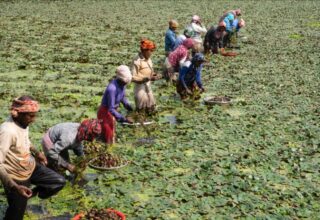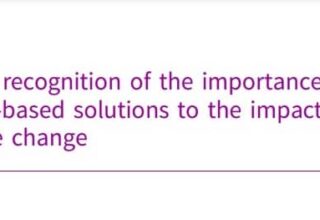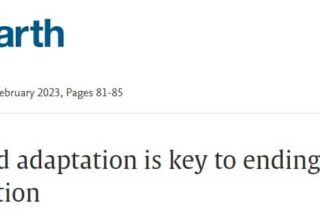Bangladesh produces only 5% of the cotton she needs to sustain her readymade garments industries. The country has very limited agricultural land and cotton competes with other crops for this scarce land resource. On top of that, Bangladesh is regarded as a country where agriculture is highly vulnerable to the variabilities of weather patterns that result from climate change. Against this backdrop, to better understand the potential for the sustainable expansion of cotton production in Bangladesh, we examine cotton’s agricultural value chain and projected climate risks associated with different phases of the chain. We identified associated stakeholders at different phases of cotton production, engaged with them to understand climatic and non-climatic threats and developed an integrated set of recommendations for climate-risk management through improving the connection of producers to markets, increasing economic returns to small farmers, and improving efficiency along the value chain. We discussed our estimated climate projections with stakeholders to understand the challenges at different stages of production and marketing, and together explored and identified probable solutions. This research offers a new and evolving approach to assess climate change impact on agriculture utilizing a holistic approach, which could be adopted for other crops.
Authors:
-
Tracking Community Perspectives on Climate Resilience in Bangladesh
Introduction Bangladesh, which generates a meagre 0.56% of global carbon emissions, is amo… -
Global recognition of the importance of nature-based solutions to the impacts of climate change
According to the World Economic Forum (2020) Global Risks Report, failure to mitigate and … -
Locally led adaptation is key to ending deforestation
Despite global pledges to end deforestation, forest loss continues. Focusing on mangrove f…
-
Call for Youth Innovation Fund – Sponsoring Green Idea/Campaign -2024
We are excited to launch the “Youth Innovation Fund” for year 2024 and welcoming applicati… -
What Bangladesh can do before COP29
This year’s climate summit—the 28th Conference of the Parties for climate change (CO… -
Saleemul Huq (1952–2023)
Saleemul (Saleem) Huq was one of the ten most influential climate experts, Advisor to the …
-
Loss and damage case studies from the frontline: a resource to support practice and policy
Loss and damage is an urgent issue: the world’s least-resourced communities and countries … -
Principles for locally led adaptation
Recovery from COVID-19 provides a historic opportunity for giving greater voice to local p…
Check Also
Tracking Community Perspectives on Climate Resilience in Bangladesh
Introduction Bangladesh, which generates a meagre 0.56% of global carbon emissions, is amo…






